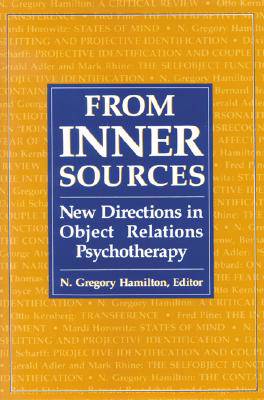
En raison d'une grêve chez bpost, votre commande pourrait être retardée. Vous avez besoin d’un livre rapidement ? Nos magasins vous accueillent à bras ouverts !
- Retrait gratuit dans votre magasin Club
- 7.000.000 titres dans notre catalogue
- Payer en toute sécurité
- Toujours un magasin près de chez vous
En raison de la grêve chez bpost, votre commande pourrait être retardée. Vous avez besoin d’un livre rapidement ? Nos magasins vous accueillent à bras ouverts !
- Retrait gratuit dans votre magasin Club
- 7.000.0000 titres dans notre catalogue
- Payer en toute sécurité
- Toujours un magasin près de chez vous
125,95 €
+ 251 points
Description
"This volume is a collection of 14 previously published papers, chronicling a modern position on object relations theory in its clinical rather than theoretical aspects. The editor, along with a number of contributors, including Glen O. Gabbard and Thomas Ogden, are members of a group of brilliant young American psychoanalysts who are forging aggressively into fields initially explored by the British psychoanalytic adherents. Hamilton, formerly a Menninger Foundation staff member, has moved to Oregon, where he is taking a vigorous role in the education of psychoanalysts. The papers in the volume are in the main well known and written by authoritative clinicians. Hamilton's editing is excellent; he provides a useful brief rationale for each paper. After a brilliant dissertation on the whole field of object relations theory, the book's three sections cover the differences among theories and therapists and their techniques; the relationship between therapist and patient; and clinical accounts of work with severely disturbed patients.
Hamilton clearly is committed to the object relations approach and takes pains to delineate how it varies from traditional ego-psychological, drive-defense approaches. He has published on this subject in the past and uses literary metaphors and intense and passionate language to convey how important he considers this particular branch of psychoanalysis to be and how different it is from the American and Freudian schools. He points out that the parallel development between object relations theory and ego psychology in the British Psycho-Analytical Institute came from the treatment of patients more disturbed than those their American counterparts were seeing, people whose primary issues had to do with difficulties in establishing, internalizing and externalizing relationships, who had problems with reciprocity and mutuality.
This book will have wide usefulness both to busy clinicians and to academically oriented psychotherapists who want a collection of papers for teaching purpo
Hamilton clearly is committed to the object relations approach and takes pains to delineate how it varies from traditional ego-psychological, drive-defense approaches. He has published on this subject in the past and uses literary metaphors and intense and passionate language to convey how important he considers this particular branch of psychoanalysis to be and how different it is from the American and Freudian schools. He points out that the parallel development between object relations theory and ego psychology in the British Psycho-Analytical Institute came from the treatment of patients more disturbed than those their American counterparts were seeing, people whose primary issues had to do with difficulties in establishing, internalizing and externalizing relationships, who had problems with reciprocity and mutuality.
This book will have wide usefulness both to busy clinicians and to academically oriented psychotherapists who want a collection of papers for teaching purpo
Spécifications
Parties prenantes
- Auteur(s) :
- Editeur:
Contenu
- Nombre de pages :
- 336
- Langue:
- Anglais
- Collection :
Caractéristiques
- EAN:
- 9780876685402
- Date de parution :
- 07-07-77
- Format:
- Livre relié
- Format numérique:
- Genaaid
- Dimensions :
- 159 mm x 235 mm
- Poids :
- 693 g

Les avis
Nous publions uniquement les avis qui respectent les conditions requises. Consultez nos conditions pour les avis.






